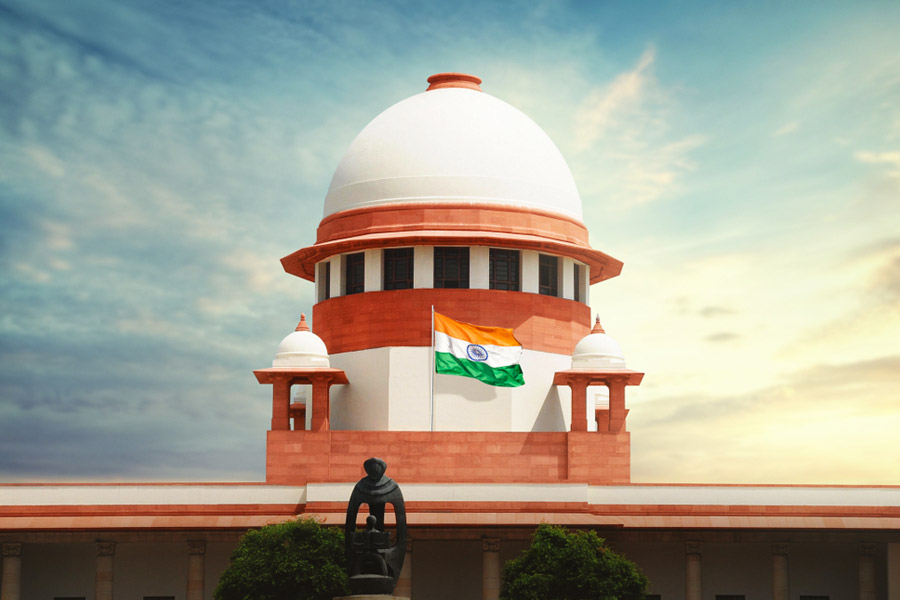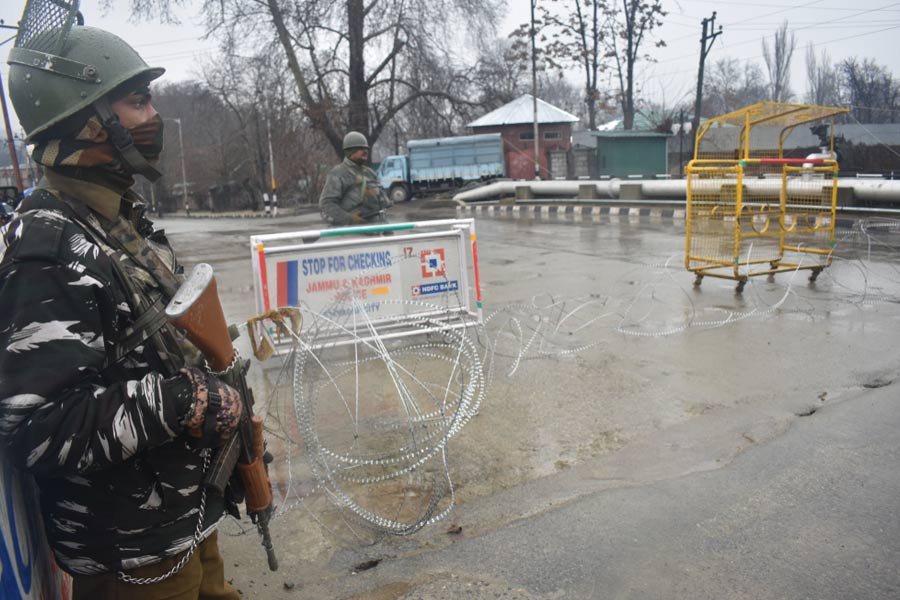- Human rights abuses in Jammu and Kashmir since 1980s must be probed: Supreme Court judge's separate ruling: reports NDTV
- Justice Kaul directs setting up of truth-and-reconciliation commission to probe human rights violations both by State, non-State actors
- Justice SK Kaul in concurring judgment with CJI says purpose of Article 370 was to slowly bring J&K at par with other Indian states
- Requirement of J&K constituent Assembly's recommendation in Art 370 can't be read in manner making larger intention redundant: Justice Kaul
- We uphold validity of decision to carve Union Territory of Ladakh out of Jammu and Kashmir, says CJI
- CJI says 'we hold exercise of presidential power to issue constitutional order abrogating Article 370 of Constitution as valid'
- Article 370 verdict: Order to scrap J&K special status constitutionally valid, rules SC
- We direct that restoration of statehood in Union Territory of J&K shall be done at the earliest, says CJI.
- We hold the president seeking concurrence of union and not state is valid, all provisions of Indian constitution can be applied to J&K: CJI
-
We direct that steps be taken by EC to conduct elections of J&K Assembly by September 30, 2024, says CJI
- When Constituent Assembly of J-K ceased to exist, special condition for which Article 370 was introduced ceased to exist: CJI
- Constituent Assembly of J&K was never intended to be permanent body, says CJI
- J&K does not have internal sovereignty different from other states of the country, says CJI
- CJI says Article 370 of Constitution was temporary, president's power to revoke it still exists
- J&K became integral part of India, this is evident from Articles 1 and 370 of the Constitution: CJI
- SC rejects petitioners' arguments that no irreversible action can be taken by Centre during President's rule
- Every decision taken by Centre on behalf of state during presidential rule can't be challenged, says CJI
- CJI says SC need not adjudicate on validity of presidential proclamation in J&K as petitioners have not challenged it.
- Article 370 of Constitution was interim arrangement due to war conditions in state, says CJI
- Article 370 in Jammu and Kashmir was temporary provision: Chief Justice in landmark special status judgment
- Jammu and Kashmir did not retain sovereignty when it joined Union of India, says CJI in special status judgment
- CJI D Y Chandrachud says there are three judgements by the five-judge bench on the issue
- 5-judge SC bench assembles to pronounce verdict on pleas challenging abrogation of provisions of Article 370 of Constitution: reports PTI
Was the decision taken by the Centre on August 5, 2019 to abrogate the provisions of Article 370 of the Constitution, which bestowed a special status on the erstwhile state of Jammu and Kashmir, constitutionally valid? The Supreme Court is scheduled to pronounce its verdict on Monday on a batch of petitions challenging the abrogation of the provisions of Article 370.
According to the cause list for December 11 (Monday), uploaded on the apex court's website, a five-judge Constitution bench headed by Chief Justice D Y Chandrachud would deliver the verdict.
The other members of the bench are Justices Sanjay Kishan Kaul, Sanjiv Khanna, B R Gavai and Surya Kant.
The apex court reserved its verdict in the matter on September 5 after a 16-day hearing.
During the hearing, the top court heard Attorney General R Venkataramani, Solicitor General Tushar Mehta, senior advocates Harish Salve, Rakesh Dwivedi, V Giri and others on behalf of the Centre and the intervenors defending the abrogation of the provisions of Article 370.
Senior advocates, including Kapil Sibal, Gopal Subramanium, Rajeev Dhavan, Zaffar Shah and Dushyant Dave, had argued on behalf of the petitioners.
The lawyers had dwelt on various issues, including the constitutional validity of the Centre's decision to abrogate the provisions of Article 370, the validity of the Jammu and Kashmir Reorganisation Act, which split the erstwhile state into two Union territories, challenges to the imposition of the governor's rule in Jammu and Kashmir on June 20, 2018 and the imposition of the president's rule on December 19, 2018 and its extension on July 3, 2019.
The petitions challenging the abrogation of the provisions of Article 370 and the validity of the Jammu and Kashmir Reorganisation Act, 2019 that divided the erstwhile state into the Union territories of Jammu and Kashmir and Ladakh were referred to the Constitution bench in 2019.
The arguments in the matter had commenced on August 2.
During the hearing, the apex court had asked who can recommend the revocation of Article 370 in Jammu and Kashmir when no constituent Assembly, the concurrence of which is required before taking such a step, exists there.
The top court had also asked how can a provision (Article 370), which was specifically mentioned as temporary in the Constitution, become permanent after the tenure of the Jammu and Kashmir constituent Assembly came to an end in 1957.
Some of the petitioners opposing the repeal of Article 370 had argued that the provision could not have been abrogated as the term of the Jammu and Kashmir constituent Assembly ended in 1957 after it drafted the erstwhile state's Constitution.
With the constituent Assembly having become extinct, Article 370 acquired a permanent status, they had said.
The Centre had argued that there was no "constitutional fraud" in annulling the provision that accorded the special status to the erstwhile state of Jammu and Kashmir.












